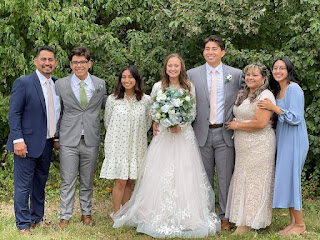The 5 Secrets of effective Communication
Super awesome week! I feel that this week, I learned a lot about communication in a relationship, or just in general. Before this week, I thought that I was a good communicator, but it turns out that I still have much more to learn.
I am sure many of us have been in a situation where communicating
was crucial. Think of that day. What was happening? How did it go? Were you
able to convey your feelings? Did the situation escalate? This week, I learned
some things that take effort to learn, but could be beneficial if used
correctly and appropriately.
The problem with communicating with another person is that the
other person has to receive the message, decipher it, and then relay it back
towards the whoever is speaking to them. This can be very hard. As a guy, it
has always been hard to communicate effectively, especially with women
sometimes. In class we learned that there are 3 different types of communication,
all which total to 100%.
1.
Words – 14%
2.
Tone – 35%
3.
Non-verbal (body language) – 51%
Total = 100%
I remember one time, with a previous girlfriend, I knew that
she was slightly not in the best mood. I could tell from the way that she was
acting that something was bothering her. I proceeded to ask if there was
something on her mind, maybe even something that I had done. She told me she
was fine, but I knew otherwise since I’ve known her for quite a while. In this
example, her words did not matter as much as how she was acting.
Another important thing I learned, the 5 secrets of effective
communication, introduced by David D. Burns. Overall, he speaks about 5 steps
to aid in better communication within relationships. Now, let us all be honest,
when someone approaches us to correct us or say something we do not like or
agree with, we tend to be defensive. An argument can then ensue. Instead of
trying to escalate the discussion, the 5 steps can be used.
NOTE: I would like to add that if you would like to learn
more about the 5 Secrets of effective communication to learn more about it through
research, as I will be touching briefly on each step.
1.
Disarming Technique
a.
This secret involves one to find and then to
state the “kernel of truth” in what is being said.
i. As an example, there can be a time that
someone can confront us about being stubborn or selfish. Instead of fighting back,
we listen intently for what is true in their statement. In this case, we can
accept and admit that we are stubborn and selfish.
2.
Empathy
a.
I would like to say this is straightforward. In
this step, we show that we are trying to understand where the other person is
coming from.
i. It
could be as simple as, “I’m sorry that you feel that way”, or even “I’m sure
that it must have been hard”.
3.
Inquiry
a.
In this step, we check our understanding. When
engaged in a discussion, it is important to be listening to the other person sincerely.
This step can mean we ask questions to make sure we are understanding where
they are coming from so in turn, we receive clarity.
i. “I
get that you don’t like it when I tease you, am I getting that right?”
4.
“I feel” statement
a.
Here we express our own emotions to the matter
at hand.
i. “I’m
sorry, I really do feel bad that I tease you a lot. I never intended it to turn
out this way”
5.
Stroking (respect)
a.
In this last step, we are encouraged to authentically
admire or appreciate the other.
i. “I
appreciate how patient you are with me, it is something I love about you”
Though these explanations are brief, I would highly
recommend learning more about these techniques. Since learning more about them,
I have tried to change my way of thinking and approaching certain situations. I
have yet to come to a place where I am to use it, but my hope is that I can be better
at communicating. My wish is for you as well!

Comments
Post a Comment